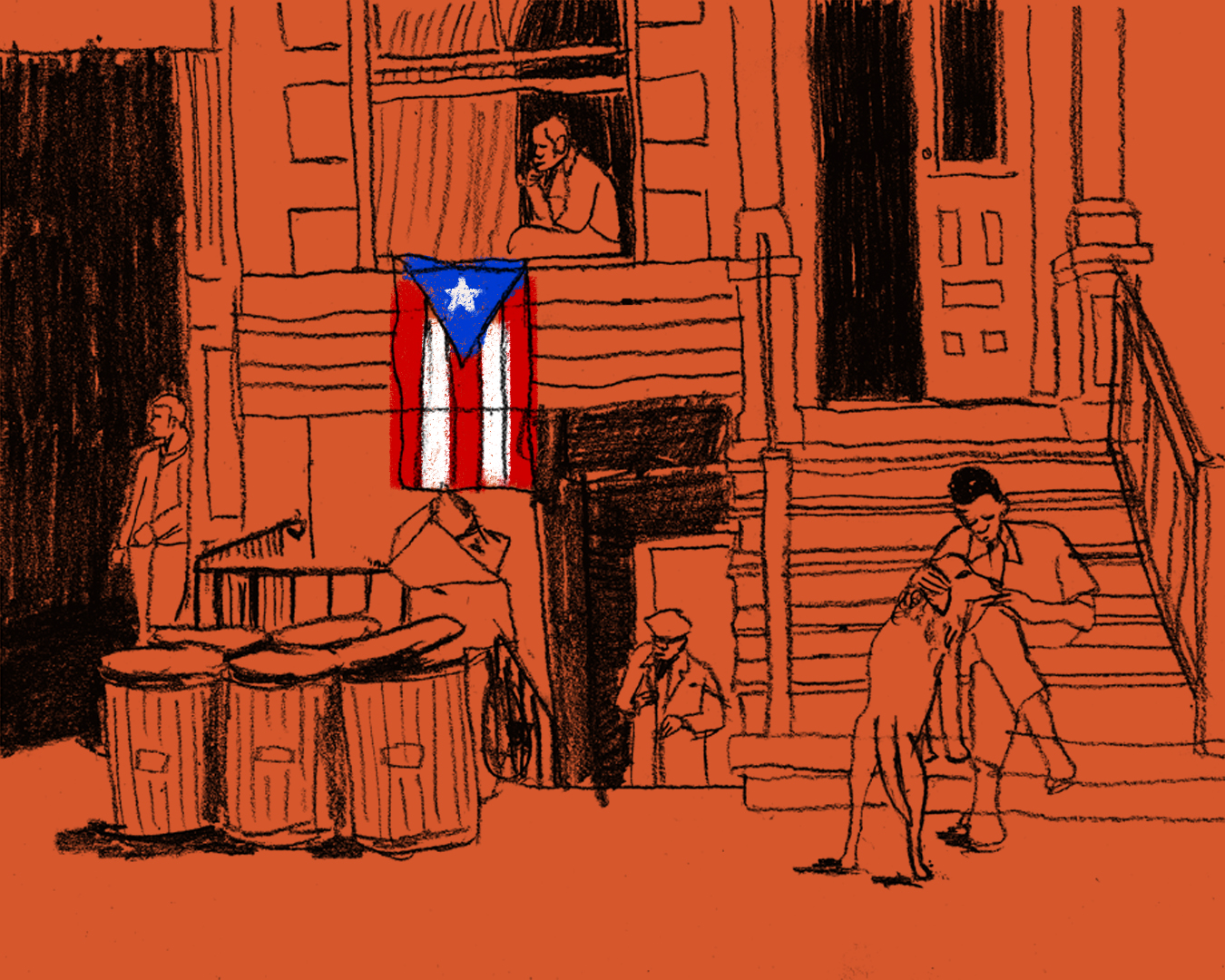Small, lush and under the constant heat of a tropical sun, the beautiful island of Puerto Rico has long stood proudly in its little space in the sea. On it, proud inhabitants juggle the cultural and political expectations of being considered American citizens, while also being labeled as “other” when coming to mainland America.
In the past 10 years, an estimated 500,000 Puerto Ricans have moved to the U.S., mostly to pursue economic opportunity or to escape the devastating results of natural disasters, such as Hurricane Maria, which struck in September 2017.
Author Amina Gautier explores this search for opportunity in her collection of short stories, “Now We Will Be Happy.” In only 128 pages, Gautier chronicles the many adversities faced by the Puerto-Rican individuals and families who have crossed the sea in hopes of achieving a financially stable and happy life.
Published in 2014, the collection has been awarded the Prairie Schooner Book Prize in Fiction, and it’s little wonder why Gautier won the award of literary excellence. Although it might be categorized as fiction, Gautier’s characters feel incredibly real as they navigate their lives in a country that should feel like an extension of their homes, but rarely seems that way.
In America, her diverse cast of characters face fear, anger, regret and a loss of connection to their roots. As the stories progress, she takes on the roles of mourning mothers, daughters, granddaughters, troubled sons, father and brothers. The multigenerational epic that is “Now We Will Be Happy” is as real as it could possibly be.
The beauty of Gautier’s writing is not only in her detailed description of character’s sentimentalities, but also in how she searches deeply into the heart of the Puerto-Rican culture, language and family values.
The majority of the 11 short stories presented in this short collection are connected, though not through a traditional linear timeline. This only adds to the emotions of the stories and, as Necessary Fiction writer Jeffrey Condran describes, Gautier’s writing calls for “the reader to pay attention to lives of breathtaking complexity.” Carefully chosen by Gautier, the order of these stories demands further introspection from readers as they flip from page to page.
What happens when a young couple marries and things go financially wrong? What happens when a father and a mother move to a new country for the sake of their son’s future, but their son resents them for it? Can a Puerto-Rican woman who does not speak or understand Spanish be accepted by others of her heritage? Adapting in order to succeed is a universal truth, and for these Puerto-Rican characters, it’s more difficult because the country they are in does not embrace them as full Americans.
Gautier opens the collection with “Aguanile,” which tells the story of a young girl who must push past her family’s estrangement of her grandfather to reconcile not only her relationship with him, but with her native island as well.
We meet the granddaughter again in “How To Make Flan,” a story in which she is old enough to understand how being biracial (half black, half Puerto Rican) affects her in both cultures. She questions which “side” she belongs to the most, or if she belongs to either of them at all. One of the most touching moments occurs when her grandmother reminds her that she’s the “conquistador, the Indian, and the slave, struggling to be one.”
Gautier does a marvelous job of describing salsa music and making readers hungry for a smooth slice of the coconut pudding tembleque, and it’s remarkable how she unifies the many identities of Puerto Ricans. There is a beautiful moment in which the granddaughter finds solidarity in how a wide variety of ingredients, when combined and left to set, make flan.
Other characters, such as Rosa from “Now We Will Be Happy,” are found again through different protagonists as the collection continues. In her first appearance, Rosa is a woman who has married an abusive man and finds a lover to help heal her wounds. Later, Rosa is presented in the story of Pedro, her husband.
And by the time she makes her third appearance, it is through yet another character who watches her husband abuse her and her lover piece her together, while he longs for a father who has escaped to Puerto Rico from parents who left their home for him.
This same longing boy is found as an infant in a previous story, “Bodega,” where his grandparents mourn the indifference their son feels toward their sacrifices. Characters re-appearing in other narratives only emphasize the humanity that connects us to one another.
One of the lessons I hope readers take away from this technique is that there is always more than meets the eye, and we can never fully understand someone’s choices without listening to what they have to say. It’s definitely a difficult technique to pull off successfully, but the sentiment that the order of these collections builds is worth the struggle.
As a Puerto Rican who left home at a young age with my mother, I do not think there is enough Puerto-Rican literature in the world that is actively taught to high school and college students. There is not enough attention paid to authors who tell the stories of those who leave, or those who stay and live many wonderful years in a place so full of life.
Authors like Amina Gautier, not to mention Esmeralda Santiago, Denice Frohman and Raquel Sales Rivera, provide only a glimpse into Puerto-Rican culture, but it’s a beautiful one. Gautier’s collection is refreshing because it gives a genuine account of people who strive to do their best and must do so outside of their comfort zones.
“Now We Will Be Happy” is a book I will happily read over and over again by lamplight in my college bedroom, or on the porch of my abuelo’s house, drinking black coffee and having Ricardo Montaner play in the background.
















